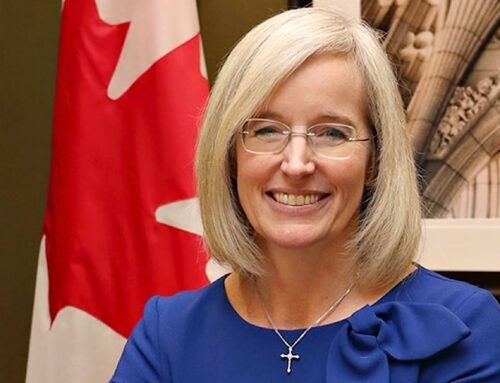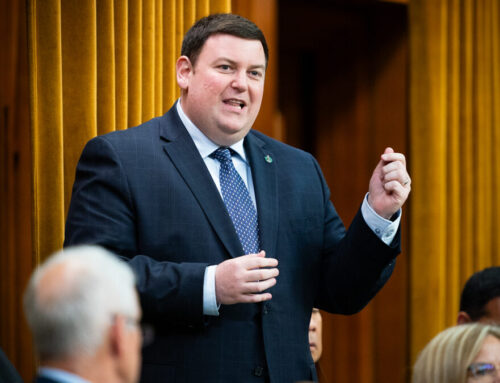 In “End of Life Decision Making,” a report issued in 2011, a so-called “expert panel” appointed by the Royal Society of Canada assured Canadians: “The evidence does not support claims that decriminalizing voluntary euthanasia and assisted suicide poses a threat to vulnerable people, or that decriminalization will lead us down a slippery slope from assisted suicide and voluntary euthanasia to non-voluntary or involuntary euthanasia.”
In “End of Life Decision Making,” a report issued in 2011, a so-called “expert panel” appointed by the Royal Society of Canada assured Canadians: “The evidence does not support claims that decriminalizing voluntary euthanasia and assisted suicide poses a threat to vulnerable people, or that decriminalization will lead us down a slippery slope from assisted suicide and voluntary euthanasia to non-voluntary or involuntary euthanasia.”That statement is plainly wrong. For evidence, one need look no further than to the evolving opinions publicly expressed by Udo Schuklenk, the Ontario Research Chair in Bioethics at Queen’s University who chaired the panel.
In the Royal Society report, Schuklenk and his colleagues concluded: “That there is a moral right, grounded in autonomy, for competent and informed individuals who have decided after careful consideration of the relevant facts, that their continuing life is not worth living, to non-interference with requests for assistance with suicide or voluntary euthanasia.”
This statement, in itself, represents a slide down a slippery slope from the original conception of legalized euthanasia and assisted suicide which limited the death-dealing procedure to terminally ill patients. In the state of Oregon, it is still the case that only a competent adult who is “suffering from a terminal illness” has a legal right to physician-assisted suicide. In the opinion of the Royal Society panel on end-of-life decision-making, that is excessively restrictive. They stated: “A diagnosis of ‘terminal illness’ should not be required for access to voluntary euthanasia or assisted suicide.”
At least, this panel also insisted: “A request for voluntary euthanasia or assisted suicide should only be respected when made by a competent person and where the request is voluntary and informed. Great care must be taken to ensure that these conditions are met.”
Is that reassuring? Not at all in view of experience in The Netherlands since enactment of the Termination of Life on Request and Assisted Suicide Act of 2002. Regardless of the clear stipulation in this act that a physician cannot legally euthanize or assist a patient in committing suicide without the “voluntary and carefully informed request” of the patient, the Dutch courts of appeal have sanctioned the actions of paediatricians in committing non-voluntary active euthanasia on severely disabled babies.
But that’s just fine with Schuklenk. In an editorial “Physicians can justifiably euthanize certain severely impaired neonates” published last year in the Journal of Thoracic and Cardiovascular Surgery, he recalled that in “Foregoing (sic) Life-Sustaining Treatment,” a report issued in 1983, the United States President’s Commission for the Study of Ethical Problems in Medicine found that in rare cases, a neonate has a permanent handicap so serious ‘‘that continued existence would not be a net benefit to the infant.” With regard to such tragic cases, Schuklenk argued: “The parents should be able to freely decide on what would amount to postnatal abortion.”
Correspondingly, in “Assisted Dying in Canada,” an article published last April in HealthcarePapers, Schuklenk wrote: “There is little support today, in Canada, for making assisted dying available to treatment-resistant incompetent depressed people, very young children and people who are incompetent, for instance, due to mental illness. This I consider deeply problematic. Majority opinion essentially insists today that the suffering of incompetent patients must continue, even in circumstances where many or most of their competent counterparts would have asked for assisted dying.”
What could be clearer? Schuklenk has now publicly repudiated the key recommendation of the Royal Society panel: “A request for voluntary euthanasia or assisted suicide should only be respected when made by a competent person.” If Schuklenk were to get his way, he would lead Canada further down the slippery euthanasia slope to legalizing even non-voluntary euthanasia and assisted suicide for incompetent and depressed patients.
Schuklenk should ponder anew the report of the President’s Commission on forgoing life-sustaining treatment. Instead of sanctioning infanticide, this Commission simply pointed out that in some rare cases, the withdrawal of life-sustaining treatments can be in the best interests of a severely handicapped neonate. Having made this valid point, the Commission emphasized: “Just as with older patients, even when cure or saving of life are out of reach, obligations to comfort and respect a dying person remain. Thus infants whose lives are destined to be brief are owed whatever relief from suffering and enhancement of life can be provided, including feeding, medication for pain, and sedation, as appropriate.”
That’s the truth – a vital and fundamental truth – which, come what may, pro-life Canadians should steadfastly affirm in both word and deed.




